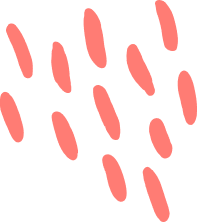Analyzing the recent changes in Russian education

The Ministry of Education and the Ministry of Higher Education is the regulatory body in Russia for education that is state-provided. Regional authorities regulate education that is within their jurisdictions within the prevailing framework of federal laws. The expenditure on education in Russia has grown from 2.7% in 2005 to 4.7% in 2018. Yet it remains below the Organisation for Economic Cooperation and Development average of 4.9%.
Education in Russia is state owned and schooling is free up secondary level. Tertiary education is also free, but it is only with reservation. Male and Female students are equally shared in all stages of education (Primary, and secondary) except in tertiary education Women lead with 57% compared to Male students.
The UNESCO 2005 report states that more than half of the Russian adult population has attained a tertiary education, which is twice as high as the OECD average.
-
By the 2007-08 academic year, Russia had 8.1 million students enrolled in all forms of tertiary education.
-
A staggering 5.2% of Foreign students accounted for enrollment, half of whom were from other CIS countries.
-
6.2 million students were enrolled in 658 state-owned and 450 private civilian university-level institutions licensed by the Ministry of Education;
-
total faculty reached 625 thousand in 2005.
From 514 in the year 1990 to 655 in 2002 the number of state-owned institutions rose steadily and since then has remained constant. The total number of private institutions which was reported as 193 in 1995 continues to rise.
Traditional model
Most European countries follow the Bologna process model. Unlike the Bologna model, Russian higher education was traditionally not divided into undergraduate and graduate levels. Instead tertiary education was undertaken in a single stage. The duration of the tertiary stage was typically five to six years and it resulted in a specialist diploma. In Russia, a Specialist diploma was equivalent to an MSc/MA qualification. A specialist graduate degree needed no further academic qualification to pursue a professional career. Military college education lasted four years and was ranked as equivalent to a specialist degree.
Civilian tertiary education was divided between a minority of traditional wide curriculum universities and a larger number of narrow specialization institutes (Including art schools). Institutes such as the Moscow Engineering Physics Institute and the Gerasimov Institute of Cinematography are concentrated in Moscow and Saint Petersburg. The fields that are more in demand such as doctors and teachers, the institutes are spread evenly across the country. Institutes in geographically specific fields will tend to be situated in areas serving their specialties. Mining and metallurgy institutes are located in ore-rich territories, and maritime and fishing institutes are located in seaport communities.
As of 2008 law department trained around 750 thousand students. Legal education in Russia exists both within universities and as a standalone law institute. An example of such an institute is the Academic Law University founded under the auspices of the Institute of State and Law. In the year 1990, many technical institutes and new private schools created their law departments.
Move toward the Bologna Process
The process of migrating from the traditional tertiary education model that is incompatible with the existing Western academic degree has already started in Russia. In October 2007 Russia enacted a law that replaced its traditional 5-year model of education with a two-tiered approach which consisted of a four-year bachelor's and was followed by a year Master’s degree.
This move wasn’t without its share of criticism, because it is merely a formal approach, and instead of reshaping their curriculum, universities would simply insert BSc or BA accreditation in the middle of their standard five or six-year programs. Critics predict that stand-alone BSc/BA diplomas will not be recognized as "real" university education in the foreseeable future, rendering the degree unnecessary and undesirable without further specialization since the job market is not familiar with these changes. Institutions like the Moscow Institute of Physics and Technology (MFTI) and National Research Nuclear University (MIFI) have practiced a two-tier breakdown of their specialist programs for decades and switched to Bologna process designations well in advance of the 2007 law.
There is no guarantee that formal acceptance of the Bologna process will help students who are seeking a better education. While previously the five-year specialist training was free to all students, the new MSc/MA stage is not! This shift towards the Bologna process forces students to pay for their studies. The cost of education is unavoidable because the BSc/ BA degree alone is considered useless. Those who defend the Bologna process argue that the final year of the specialist program was formal and useless: academic schedules were relaxed and undemanding, allowing students to work elsewhere Cutting the five-year specialist programme to a four-year BSc/BA will not decrease the actual academic content of most of these programmes.
Conclusion
The overall education system of Russia is slowly experiencing a change owed to the multiple reforms that are slowly been implemented by the regulatory bodies of the Russian education system in recent times. Some of these changes are crucial additions keeping in mind globalization and the modern approach that it demands.

